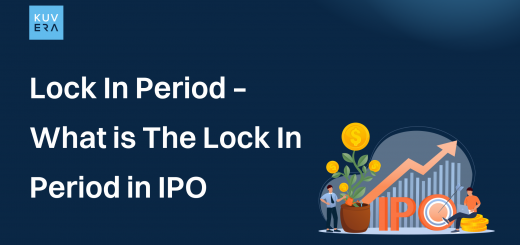
What are corporate bond funds?
Corporate bond fund is an investment vehicle that invest in corporate bonds, which are debt securities issued by companies to raise capital. Corporate bonds are typically issued with a fixed term, or maturity date, and a fixed interest rate, known as the coupon rate. The issuer of the bond agrees to make periodic interest payments to the bondholders, and to repay the principal, or face value, of the bond at the maturity date.
Corporate bond funds are managed by professional investment managers who use the fund’s assets to buy a diversified portfolio of corporate bonds. The fund’s holdings may include bonds issued by a wide range of companies in different industries and sectors, and with varying credit ratings. The fund’s holdings may also include bonds with different maturities and coupon rates.
Investors in corporate bond funds can potentially earn income from the interest payments on the bonds in the fund’s portfolio, as well as capital appreciation if the fund’s holdings increase in value. However, there are also risks associated with investing in corporate bond funds, including the risk of default by the issuer, changes in interest rates, and changes in the credit ratings of the bonds in the fund’s portfolio. As with any investment, it is important to carefully consider the risks and potential returns before investing in a corporate bond fund.
Are corporate funds better than FD?
It’s not necessarily accurate to say that one type of investment is better than another, as the appropriate investment choice depends on an individual’s specific financial goals, risk tolerance, and investment horizon. Both corporate bond funds and fixed deposits (FDs) can be suitable investments for different investors, depending on their individual circumstances.
Here are some key differences between corporate bond funds and FDs:
Risk: Corporate bond funds are subject to a number of risks, including the risk of default by the issuer, changes in interest rates, and changes in the credit ratings of the bonds in the fund’s portfolio. FDs, on the other hand, are typically considered to be relatively low-risk investments, as they are backed by the issuer (usually a bank or financial institution) and offer a fixed interest rate for the term of the deposit. However, FDs are not completely risk-free and there is a possibility that the issuer may not be able to repay the principal and interest as promised.
Returns: Corporate bond funds can potentially offer higher returns than FDs, as they offer the potential for both income from interest payments and capital appreciation if the value of the fund’s holdings increases. However, there is also the possibility of losses if the value of the fund’s holdings decreases. FDs offer a fixed interest rate for the term of the deposit, so the potential returns are known in advance.
Liquidity: Corporate bond funds can be more liquid than FDs, as they can be bought and sold on the stock market and the value of the fund’s holdings can fluctuate daily. FDs, on the other hand, have a fixed term and may not be available for withdrawal before the term ends, although some FDs may allow for premature withdrawal subject to certain terms and conditions.
It’s important to carefully consider your financial goals, risk tolerance, and investment horizon before deciding which type of investment is right for you. It may also be helpful to consult with a financial advisor or professional for guidance.
Benefits of investing in corporate bond fund
There are a number of potential benefits to investing in corporate bond funds, including:
Diversification: Corporate bond funds offer the opportunity to diversify your investment portfolio by investing in a wide range of corporate bonds issued by different companies in different industries and sectors. This can help to spread risk and potentially reduce the impact of any individual bond defaulting or experiencing a decline in value.
Potential for income: Corporate bond funds offer the potential for income in the form of regular interest payments on the bonds in the fund’s portfolio. This can be a particularly appealing feature for investors seeking a regular source of income.
Professional management: Corporate bond funds are managed by professional investment managers who have the expertise and resources to research and select individual bonds for the fund’s portfolio. This can potentially save investors time and effort in researching and selecting individual bonds.
Liquidity: Corporate bond funds can be bought and sold on the stock market, which can provide investors with the ability to easily buy and sell their investments as needed.
Potential for capital appreciation: If the value of the bonds in the fund’s portfolio increases, the value of the fund itself may also increase, providing investors with the potential for capital appreciation.
It’s important to note that investing in corporate bond funds carries risks, including the risk of default by the issuer, changes in interest rates, and changes in the credit ratings of the bonds in the fund’s portfolio. It’s important to carefully consider the risks and potential returns before investing in a corporate bond fund.
Who should invest in corporate bond funds?
These types of funds are best for conservative investors who want to refrain from credit risk, then you should choose corporate bond funds because these expose you to high quality debt papers.
The duration of the debt papers here is within 4 years. Therefore, corporate bond funds are great to fulfill your short term and medium term goals.
These are also highly liquid because the debt papers are of high quality debt paper, the demand for such funds is always higher.
Taxation in corporate bond funds
Corporate bond funds also give you tax advantage like any other debt mutual funds. Short-term capital gains if you sell your investment before three years are taxed as per your income tax slab rate while long-term capital gains are taxed at 20 per cent with indexation. Meaning, inflation adjusted post-tax profits. Fixed deposits don’t give you any tax advantage, especially if you belong to the 20% or 30% tax bracket.
Interested in how we think about the markets?
Read more: Zen And The Art Of Investing
Start investing through a platform that brings goal planning and investing to your fingertips. Visit kuvera.in to discover Direct Plans and Fixed Deposits and start investing today. #MutualFundSahiHai #KuveraSabseSahiHai











